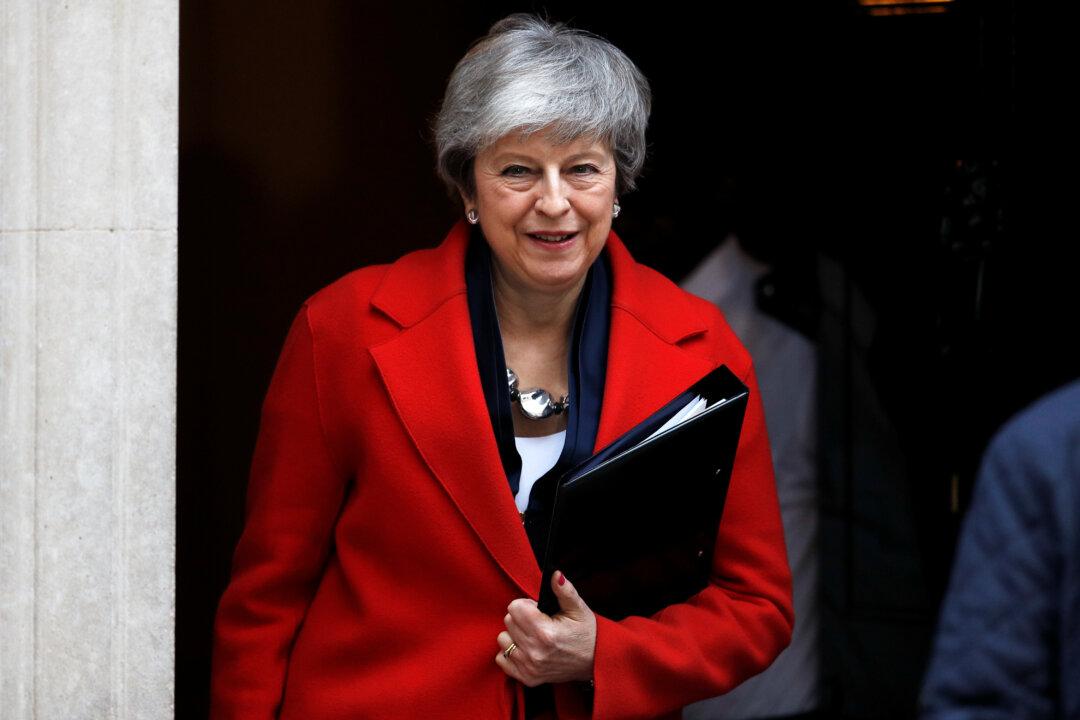LONDON—Prime Minister Theresa May on Feb. 26 offered lawmakers the chance to vote in two weeks for a potentially disorderly no-deal Brexit or to delay Britain’s exit from the European Union if her attempt to ratify a divorce agreement fails.
Opening up the possibility of a delay and removing the immediate threat of a no-deal exit on March 29 marks one of the biggest turning points in the United Kingdom’s labyrinthine Brexit crisis since the 2016 referendum vote to leave the EU.





